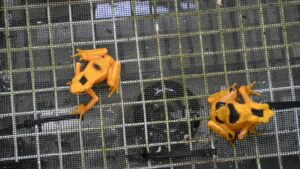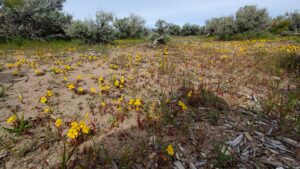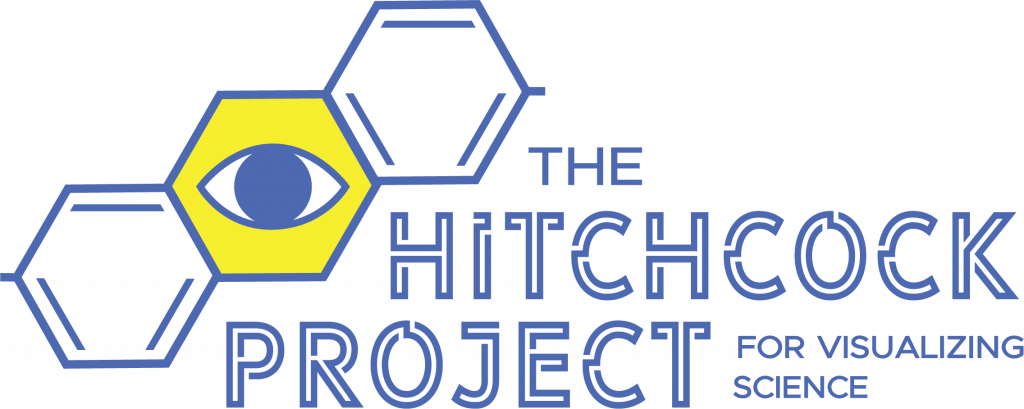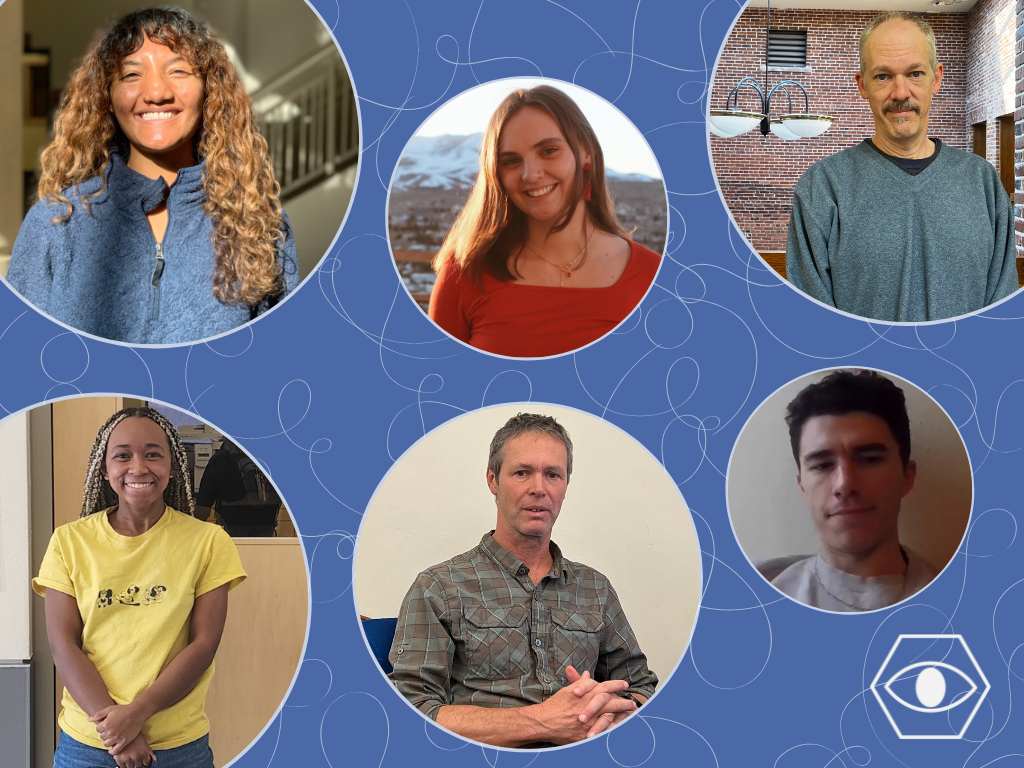
The Hitchcock Project’s Science Reporting class asked a selection of scientists and science students at UNR how climate change is impacting their work. Here’s what they learned.
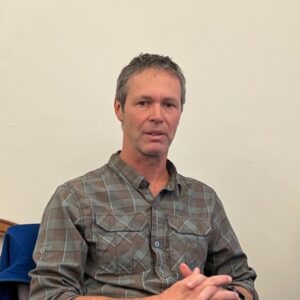
Lee Dyer, Professor, Ecology, Evolution, and Conservation Biology graduate program
Lee Dyer is a professor of ecology at UNR, studying how plant chemistry affects interactions between plants and insects from southern Brazil to northern Canada. Dyer says:
“The systems that I study are natural ecosystems that can’t escape the reality of climate change. And so everything that I’ve been studying for the past 40 years is being impacted by extreme weather events, increasing temperature, increasing CO2. And, in fact, I shifted my research a couple of decades ago to look at how these things were affecting plant chemistry. So, how things like increased temperature, increased CO2, increased extreme weather, affected plant chemistry, and how that affected the diversity of insects interacting with plants.”
This wasn’t initially where he saw his career heading. Dyer was originally an English and Biochemistry double major who found passion in studying the natural world.
“I didn’t choose to study climate change. That was something that was thrust upon my research by climate change itself.”
Reported by Sophia Holm, Hitchcock Project
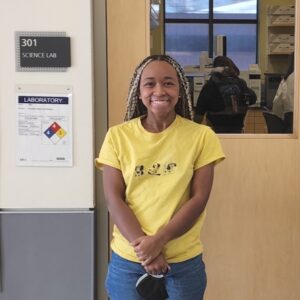
Victoria Parker, public health student
Victoria Parker, 20, public health major, says:
“[Climate change] doesn’t specifically have a direct impact on my work. I think that since I’m a public health major, there are health impacts that come with climate change that impact the population health, for example.”
Climate change is impacting the work of others who work in her field, Parker says.
“There’s a lot of environmental health that goes on to our field because public health works with everything. So one really big aspect is that one of my professors from last semester, she researched how the increase in heat waves impacts pregnancy and outcomes. So really can have an impact on whatever path that I ended up choosing.”
Why did she choose this career path?
“I chose public health because I liked how it’s not just looking at diseases and how to treat diseases, I like the fact that it’s actually looking at why we have them.”
Reported by Robert Rincon, Hitchcock Project
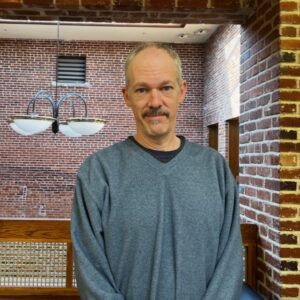
Thomas Albright, Associate Professor, Department of Geography
Thomas Albright is an Associate Professor in the Department of Geography at UNR who is also involved in the Ecology, Evolution, and Conservation Biology program, and who advocates for better bicycling in Reno. He is currently working on two projects related to climate change, one project funded by the National Park Service, and the other one Funded by NASA. Albright says:
“A lot of my research has focused and continues to focus, on how organisms, plants and animals are changing, and how so much of that is driven by human change, land use, invasive species, and also climate change…But in my teaching, I’ve been doing a lot of work on how we’re going to deal with the climate change problem and thinking more and more about solutions, not just on what’s going wrong, but actually getting into how to fix it.”
Professor Albright is interested in providing actual steps to reduce climate change and in finding climate justice.
“We have a massive injustice where the folks that have benefited most from emitting things and having cheap energy and using a ton of resources, they’re not going to have as much of a problem dealing with climate change as the folks that live in, say, low elevation areas with very low, low resource bases and economies that don’t have a lot of money in them,” added Albright.
“The folks that are most affected by heat waves also tend to be more, you know, first-generation immigrants, English as a second language, lower socioeconomic class, people of color. Very clearly, those folks tend to live in areas that have a bigger problem with urban heat islands: they have hotter temperatures than folks living in, say, wealthy areas.”
Reported by Vanesa de la Cruz Pavas
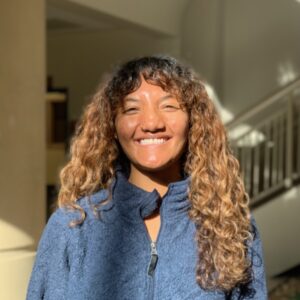
Maalí DeLeon, biochemistry and sociology student
For UNR undergraduate Maalí DeLeon, her majors in biochemistry and sociology are fundamental pieces in understanding how climate change affects vulnerable communities in natural disaster zones. She hopes to go to medical school and be a physician to help communities experiencing environmental health inequities and emphasizes how:
“Climate change is something that at this point, now is really in the front of everyone’s minds, because we can see the effects. It’s something that affects everybody. Even if we’re talking
about the top one percent who have all the resources, maybe they could go to Mars, but it affects everybody at every socio-economic level, and different demographics. So, it’s something that we all can do something about.”
Reported by Lupe Alvarez
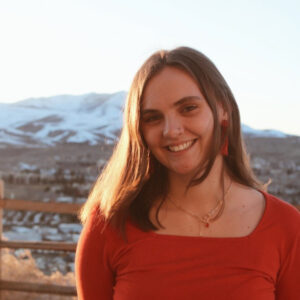
Casey White, graduate student, animal and rangeland science
Casey White is a Ph.D. student at UNR studying the impacts of climate change on rangeland ecology. White says:
“Rangelands are very important for ecosystem services, they provide a lot of land for agriculture…and play a huge role in carbon sequestration, so they’re important to protect for climate regulation. These areas are very used to droughts and extreme temperatures. My research uses data sets derived from satellite imagery that measure carbon fluxes to assess the health of these ecosystems, particularly of agricultural land use… producers in agriculture don’t really know that there’s this data out there that can help them kind of manage their lands better or understand what’s impacting their lands…I feel like, when people think of climate change, they think of the oceans, melting ice. But it’s these areas that are especially susceptible to degradation, and because these areas store so much of our carbon that is being released, it’s really important to protect these areas.”
Reported by Hannah Truby, Hitchcock Project
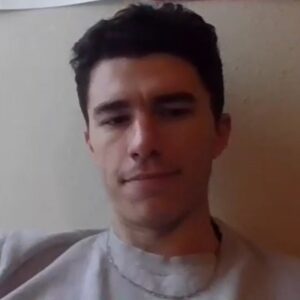
Zach Cook, electrical engineering student
Zach Cook is an electrical engineering student at UNR. Cook says that adapting to the challenges of climate change is creating job opportunities for people in his field:
“I would say that it slightly affects my profession, kind of in a positive way, which isn’t necessarily good sounding. But it actually keeps me in business. Because there’s a lot of demand for electrical engineers to go out there and create technology such as power grid upgrades, grid tile electrical systems, and just create more efficient systems that allow for carbon capture technology or that don’t release as much emissions into the atmosphere. So you do see a lot of engineers being hired for those purposes to create those technologies.”
“I chose to get into electrical engineering, because I thought it was one of the few STEM subjects out there that had a little bit of creativity in it,” Cook added. “I think a lot of things are too analytical in STEM, and they don’t actually allow for you to broadcast solutions that actually change the world in an impactful way. And I think electrical engineering is one of the few subjects out there that’s able to do that.”
Reported by Grahm Prater, Hitchcock Project

